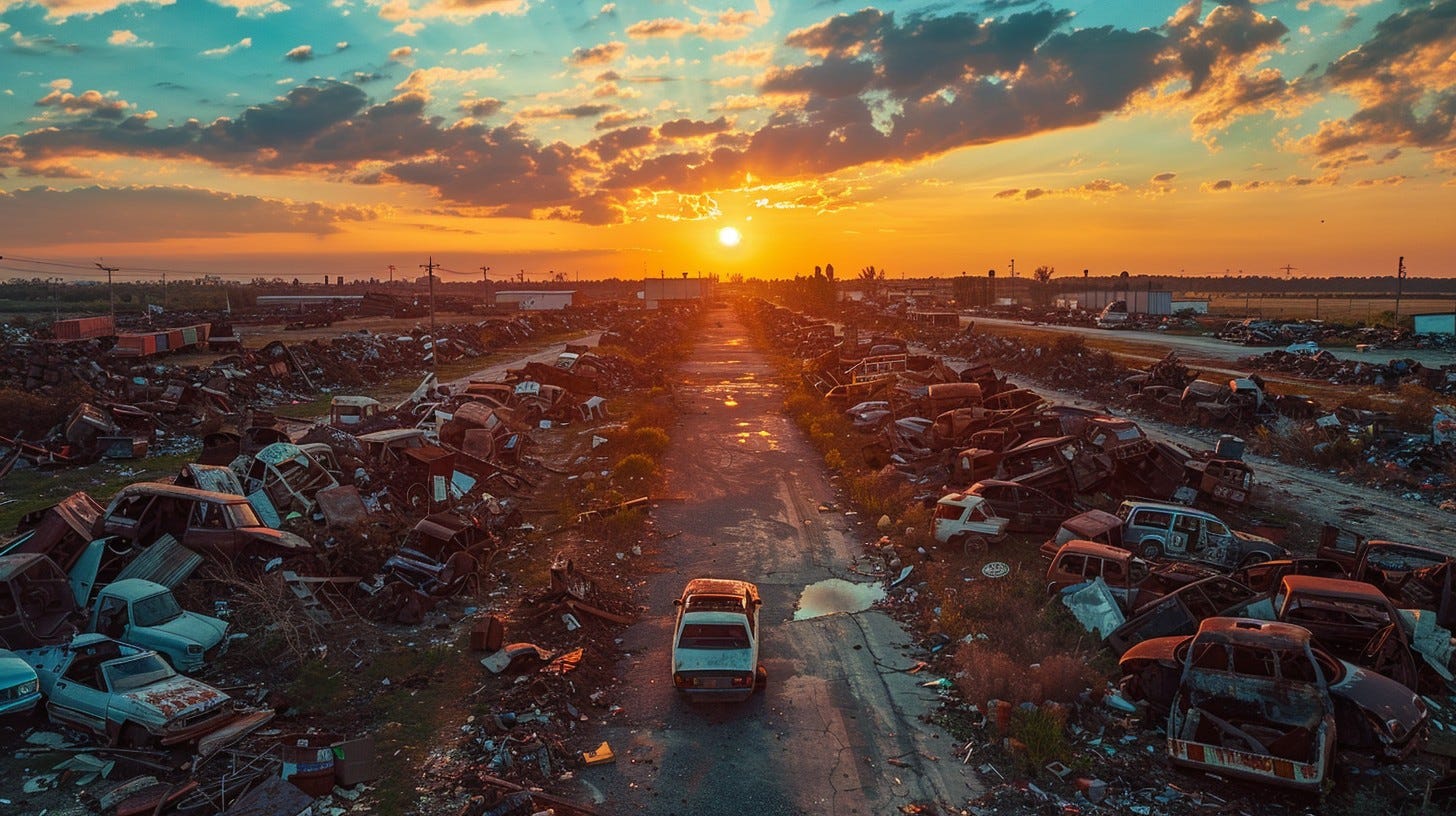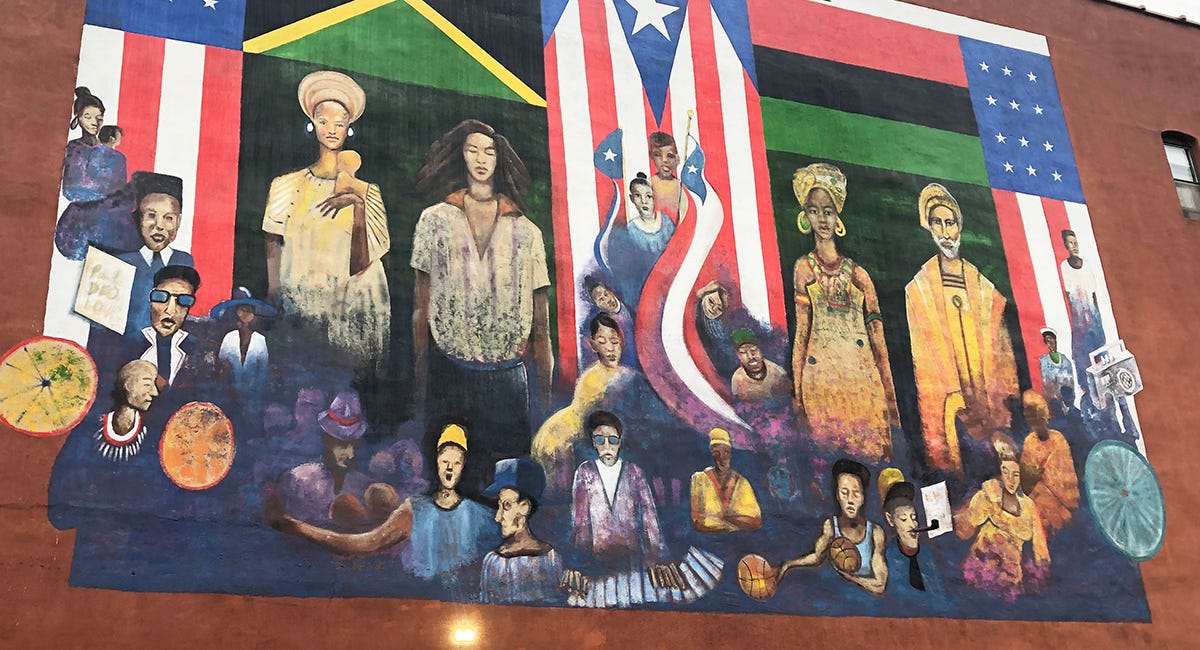
Humanity is at an inflection point, seemingly unable to cut through division and societal angst. A toxic combination of demagoguery and oligarchy is challenging the democratic norms many of us have taken for granted throughout our lives.
Climate change is not being tackled; our economies only work for an ever-shrinking number of us; and the post-Cold War global system is unravelling. We are hoping that 20th century solutions will somehow fix 21st century problems and, in a sense, this ‘reflex thinking’ fits with what humans have always done.
Throughout history, we have understood our lives through stories. When existing stories fail to keep pace with change, or even start hurting us, new ones emerge with a vision for a brighter tomorrow. History is made when we stop dealing with yesterday’s problems, but instead try to fix the future.
Gridlocked is created as an ideas platform for fixing the 21st century, delivered through original writing, interviews, podcasts and (soon I hope) documentary films. Join me in exploring how to address critical issues facing humanity, in depth and away from the ‘noise’ of standard social media echo chambers or fickle-natured, fast-paced 24/7 news cycles.
What makes this current period in history extraordinary is not our inability to create a new story … It is that we are not seriously trying.
Our systems are broken: we are not on track to combat climate change; produce the five-fold increase in clean energy required by the middle of this century to keep pace with demand growth; or transform our failing economies. The negative knock-on effects of all of this cannot be understated. Is it any wonder that the geopolitical risk outlook looks so scary right now?
Even without the climate challenge or any geopolitical crises, neoliberalism as the prevailing political-economic ideology – free markets, deregulation and shrinking of the state – isn’t working. The 2008 crash should have been the final wake-up alarm call that something needed to fundamentally change. But we decided to hit snooze, and have been dozing ever since.
There are few examples of grand strategies failing so spectacularly as the current net zero agenda. The only thing that isn’t wrong about it is the end objective of averting climate catastrophe. However, trying to do so with the wrong tools, guided by the wrong metrics, and following a failed economic philosophy is getting us nowhere fast. It just encourages climate science deniers to wreak havoc with our children’s futures, not to mention those of the generations to follow.
But the problem isn’t just down the track. It is now. Let’s face it, the severe weather events linked to climate change that we are already witnessing aren’t aberrations. They have become the norm. The pattern is clear: floods, hurricanes and wildfires are increasing in frequency and ferocity. The situation is already dire enough to demand drastic intervention. Don’t take my word for it: ask a resident of Valencia, Asheville or Los Angeles.
The neoliberalism story, which began around the time I was born, is hurting us.
We need to change the narrative, but our political and corporate leaders are devoid of new ideas. In fact, giving unqualified and unaccountable business executives too much power and influence is a big part of how we reached this position. I’m not suggesting corporations have no role to play, but we cannot continue to allow those with vested interests in perpetuating the status quo to hold us back from making meaningful change.
So, where are the agenda setters who are actually proposing the alternative models that can address each of our fundamental problems; and preferably together at the same time?
Who is writing the new story we need?
Gridlocked is an attempt to do this, giving voice to fresh thinking from those whose ideas tend not to get the coverage they deserve. Or rather, to try to convey those ideas more effectively in ways that resonate with the everyday lives of ordinary people. Gridlocked aims to cut through beyond the academic or public policy realm without having to rely on mainstream media filters.
As such, Gridlocked favours human-centred storytelling told from a first-person narrative perspective; to distil technical content into plain English in relatable ways for a wider audience. I’m breaking my rule with this introductory piece, but the next one will conform to it!
The Gridlocked ethos: stories change people – ideas, data and evidence (alone) don’t.
This new platform started as a docuseries podcast released in 2023, the first season of which focused on the need to ‘clean up’ energy production and consumption. It continues by looking at how humanity can combat climate change, while going further to build future economies that work for everyone. Perhaps inevitably, this leads to examining urbanisation processes and cities as the laboratories where ideas are explored and contested, and from where social and political change is enacted.
This is a crowded space: Gridlocked tries to stand apart by not only presenting alternative solutions, but by drawing a link between clean energy and broader societal divisions that threaten to destroy us before climate change ever does.
Part of this entails challenging conventional ‘climate conscious’ thinking which tends to be anti-nuclear, inaccurate and unrealistic about what other low carbon energy sources can actually deliver. It will be argued here that we cannot afford to be dogmatic in our efforts to decarbonise in order to avert climate catastrophe.
But energy is just the start. Gridlocked will go on to present outlines for new ways of doing things, providing the versatility that both our thinking and our systems require to not only combat climate change, but create economic prosperity in any community – especially those left behind by globalisation and urbanisation.
The Gridlocked vision: to see a more equitable world, operating sustainably to ensure that future generations can inherit viable societies on a liveable planet
I cannot say how optimistic I feel right now, but I am convinced that we can make progress if we have the will to do so. Because, as someone once told me: nothing happens by accident; it all happens by design.
We have chosen to structure our societies in a particular way, guided by certain principles and perpetuated through policies we choose to pursue. None of this is set in stone: it can all be changed. Yet, bizarrely, we seem to act as though it can’t.
Humanity is blessed with an incredible wealth of advanced knowledge, expertise and sophisticated technology at its disposal. So why can’t we achieve the breakthroughs we require? Why do we accept dysfunctional systems that only work for a few of us while the rest, to varying degrees, struggle? We do not need to; there is nothing inevitable about the state we’re in.
Gridlocked will strive to shine a light on the new stories we need … the stories that tell us how we create tomorrow’s world, today. So, please do stay tuned.
If you liked this essay, you might enjoy these related pieces:
Nightswimming
My arms make arcing breaststrokes in tepid turquoise water, slicing through its smooth thickness which envelops my skin like silk. I bob down 15 feet or so to the seabed, where the water turns darker blue, cold, invigorating. I pinch my nose as I twist my body to look upwards at the light above. As a child I feared the salt stingi…
The Right to Bed-Stuy
It’s an unseasonably hot autumn day, about 25 degrees Celsius. I turn from Franklin Avenue onto Hancock Street, hugged tight by imposing four-storey Italianate brownstone terraces that frame each side of the road. Stoops worn smooth by decades of hard footsteps on soft sandstone seem to whisper secrets from a storied …








Nice piece. Can't wait to see what comes next. Great writing as usual! The more voices we can link together the more effective we can be.
Subscribed. Poignant writing. I echo the sentiment, there must be a collection of strategies that we can rally around to save our families, our societies and our ecosystems. With this incredible convergence of knowledge, there is bound to emerge a cooperative framework that allows countries to be autonomous while aligning incentives for everyone. Nuclear energy is the likely the thread that weaves it all together, but what are the fabrics we’re dealing with?